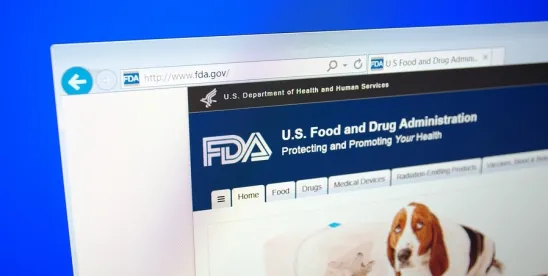-
Kratom is a botanical substance that grows naturally in Southeast Asia. FDA classifies kratom as an opioid, noting that it is addictive and has been linked to severe health consequences and deaths among users. Nevertheless, the popularity of kratom has grown in recent years despite kratom not being legally marketed as a drug or dietary supplement in the United States. In February 2014, the FDA issued an import alert that allows U.S. officials to detain imported dietary supplements and bulk dietary ingredients that are, or contain, kratom without physical examination.
-
As reported on this blog, FDA began cracking down on kratom importers with an administrative detention and seizure in January 2016, and escalated enforcement activity two years later with a voluntary recall and destruction announced February 21, 2018 of several kratom products illegally marketed as dietary supplements and May 22, 2018 warning letters against three kratom products making medicinal drug claims.
-
Salmonella risk became a new focus of concern with kratom for FDA with a mandatory recall order (FDA’s first mandatory recall order ever) announced April 12, 2018 against a kratom product associated with salmonellosis. Throughout the year, FDA announced additional kratom recalls due to salmonella contamination of products from multiple different companies and brands.
-
A Statement From FDA on the Ongoing Risk of Salmonella in Kratom Products (July 2, 2018) outlines the scientific basis for FDA’s conclusion that kratom consumption presents a significant risk of exposure to salmonella. According to FDA, salmonella contamination of kratom has probably been occurring at a significant level for some time and is ongoing. A total of 81 samples of kratom were collected and tested as a direct result of FDA’s investigation of 199 cases of salmonellosis linked to kratom consumption as of May 2018 and 42 (52%) were found to be contaminated with salmonella. FDA further found that kratom is grown and harvested mainly under conditions promoting widespread contamination of foodborne pathogens and that further processing steps to manufacture capsules, powders, and herbal remedies do not appear to eliminate microbial contamination.
-
Since FDA considers kratom to be a dangerous and addictive opioid, it is unlikely that any steps to make kratom products safer with respect to microbial contamination would result in reduced FDA enforcement.
FDA Renews Cautions Against Consumption of Kratom Following Conclusion of Salmonella Investigation
Thursday, July 5, 2018
Current Public Notices
Published: 14 August, 2025
Published: 12 August, 2025
Published: 11 August, 2025
Published: 11 August, 2025
Published: 8 August, 2025
Published: 8 August, 2025
Published: 29 July, 2025
Published: 21 July, 2025
Published: 18 July, 2025
Published: 26 June, 2025



 />i
/>i


